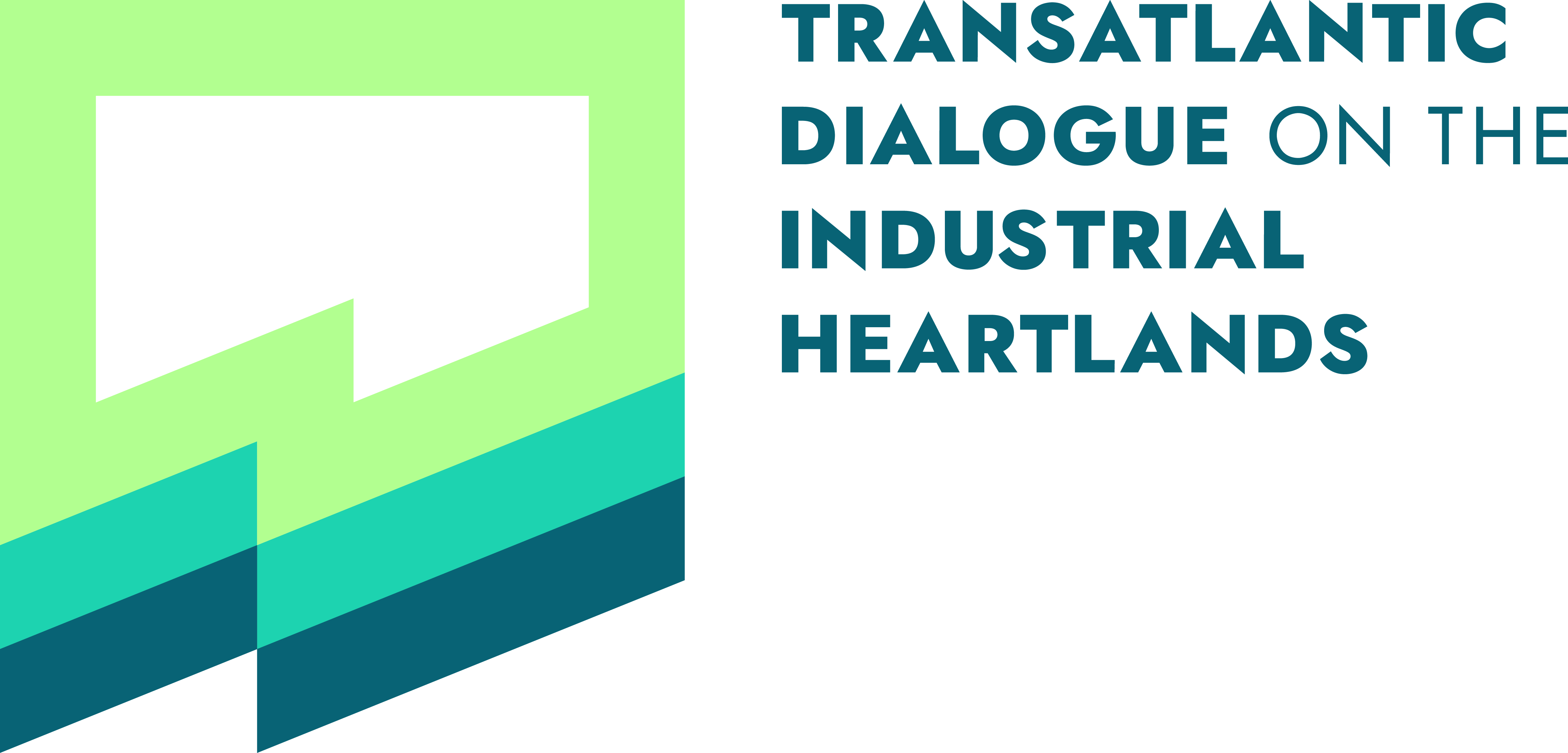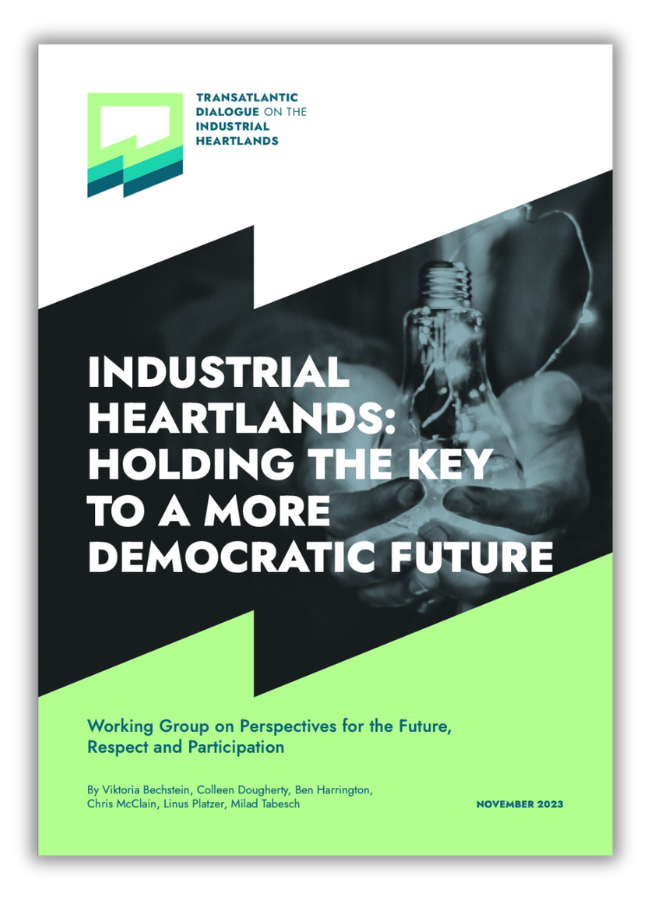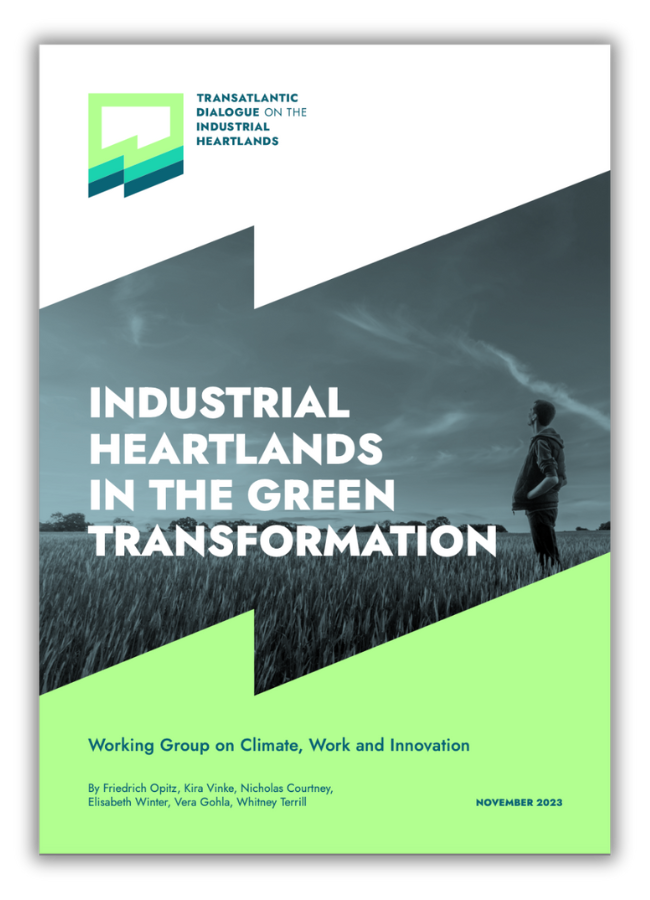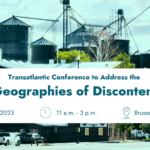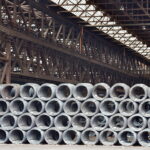Industrial Heartlands Impulse Papers
After an intensive first working phase on the thematic strands of “Climate, Work and Innovation” and “Perspective for the Future, Respect and Participation”, our Project Fellows outlined the issues and topics they will work on throughout the course of the project. They were presented to the public at Innocracy Conference on November 17 where these impulse papers set the scene for a panel discussion amongst elected officials and leaders from the US Midwest as well as German transformation regions.
Industrial Heartlands: Holding The Key To A More Democratic Future”
The future of industrial heartlands on both sides of the Atlantic stands at a crossroads. In both Germany and the United States, 2016 was characterised by the ascendance of right-wing politics, a trend exacerbated by the ascendance of right-wing politics bolstered by a perception of abandonment among the constituents of heartland communities.
In this working paper, through our own uniquely developed lenses, we reflect on the current challenges faced by post-in- dustrial heartland communities and regions, spanning three specific areas:
1. Work and Workforce
2. Democratic and Local Participation
3. The Political Future and Elections
For each area, we address what we believe to be the issues as they currently stand, discuss their importance to the future of the industrial heartlands, and work to develop our line of inquiry as a cohort.
Industrial Heartlands In The Green Transformation
Industrial heartlands on both sides of the Atlantic have been at the forefront of fundamental transformations throughout the past decades and show similar contemporary phenomenologies. Specific socioeconomic geographies, from the American Midwest to eastern Germany, are challenged by surging illiberal populist movements. They face severe demographic challenges and are battlegrounds for escalating culture wars and rural-urban divisions. At the same time, industrial heartlands are bell weathers for successfully shaping inbound structural change. They are home to populations with extensive transformation experience and could, therefore, contribute valuable lessons in the processes that shape the systemic changes underway. This is all the more reason to shine a new spotlight on industrial heartlands, and in the following, we provide impulses on how to do so from a climate, work, and innovation perspective.
